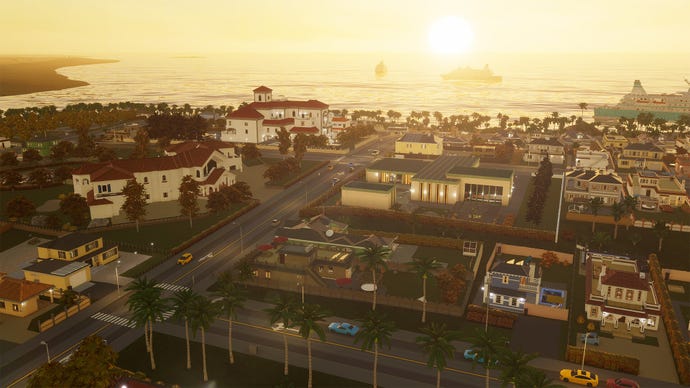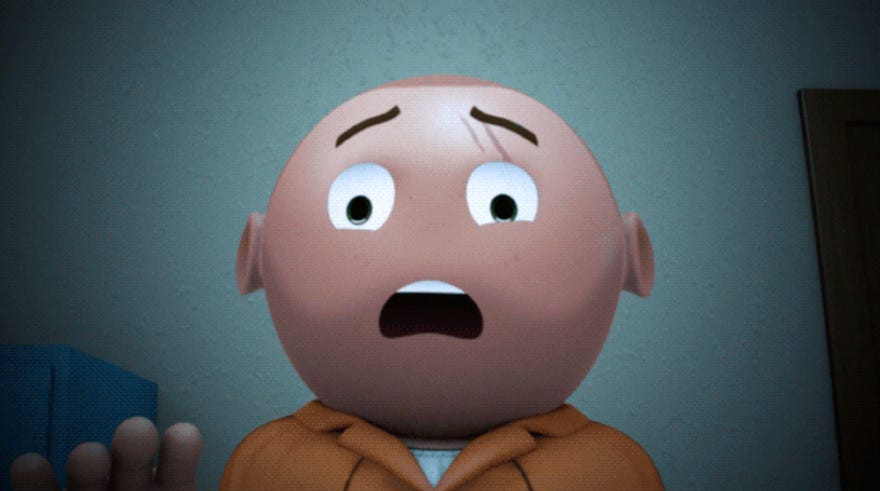Players are now less "accepting" that games will be fixed, say Paradox, after "underestimating" the reaction to Cities: Skylines 2's performance woes
Hence, delaying Prison Architect 2 to ensure it doesn't meet the same fate
Paradox Interactive delayed jail management simulator Prison Architect 2 indefinitely this August, commenting at the time that the game had notable performance issues, and that its system-led design was proving tricky to tinker with. This came a couple of months after the Crusader Kings publisher washed their hands of the sequel's original developers, Double Eleven.
Speaking to me at Paradox's Media Day last week, deputy chief executive officer Mattias Lilja offered a shade more insight on the decision, suggesting that hard-up players have "higher expectations" at present and are less trusting that developers will fix problems. Chief creative officer Henrik Fåhraeus also offered thoughts on what Paradox have learned from the disastrous launch of Cities: Skylines 2 in late 2023. Specifically, he said they need to give actual players access to the game early on, not just testers.
"We're pretty confident that the gameplay is good," Lilja said of Prison Architect 2. "But we had quality issues, which means to give the players the game they deserve, we decided to delay it. So it's not the same kind of bucket of challenges that we had with Life By You, which led to cancellation. It's more that we haven't been able to keep the pace that we wanted. But when we do peer reviews of the game and user testing and whatnot, people give us feedback, we actually get pretty good feedback, except for certain issues that we need to fix. Some of them are harder to fix than we thought."
Which issues, specifically, are Prison Architect 2's new developers Kokku having trouble with, I asked? "It's mostly certain technical issues rather than design," Lilja went on. "It's more how can we make this technically high-quality enough for a stable release." But there's also a degree of wider calculation, he added, based on Paradox's sense of how tolerant players currently are of imperfections even in early access releases.
"It's also based on the fact that we, in all transparency, see that fans right now, with a squeezed budget for games, have higher expectations, and are less accepting that you will fix things over time," Lilja said. "That's our take. The gaming space has always been the winner-takes-all type of environment. A few games bring in most of the players, and most games are dropped quite quickly, and this is even more pronounced now, [during] maybe the last two years. That's at least what we read from our games, and also from from others in the market."
These are obviously quite hazy characterisations, but there are a couple of specific reference points. One is obviously Cities: Skylines 2, which launched with performance issues so severe the developers, Colossal Order, decided to postpone release of the game's first paid DLC. While the base performance problems seem to have been largely addressed, certain DLC packs have been criticised as rushed and insubstantial, prompting Paradox and Colossal Order to issue a joint apology and propose a fan feedback summit.

"Cities 2, the experience there - we knew we would have some issues, like in every release," Lilja acknowledged. "We had more of that than we hoped. Some of those were definitely things we should have caught. But also The Lamplighter's League, which reviewed quite well, but did not attract a following that made it sustainable." Paradox's sense that audiences are choosier and more sensitive also comes from "talking to others in the business, and seeing how their games perform," he went on.
I'm always interested in how perceptions of technical shoddiness differ between players - one person's frame-rate hiccup is another person's reason to refund. Are there any particular types of technical issue that people are currently more sensitive to, I asked?
"It's not new issues," Lilja said. "People should have high expectations. It's just that in order to be certain, we should make sure that we have checked and double-checked. Some of the issues, I would argue, that we had in Cities 2, were some issues that we had not really understood fully, and that's that's totally on us."
When I spoke to him separately, Fåhraeus admitted that Paradox knew that Cities: Skyline 2's performance needed improvement before launch - they just miscalculated how much players would care. "We were aware that performance was not great, but we underestimated how it will be perceived by players - how serious the player perception would be," he said. "So I think one learning with Cities 2 is if we could have brought players in to try it on a larger scale, that would have helped. Going forward, we need to have this communication with players and openness to a larger degree, and quite early if possible."
Paradox could go about this in a variety of ways, Fåhraeus went on. "[Our community blog series] Tinto Talks is one way of communicating with players even before release. But there's also of course, closed beta tests and having dedicated enthusiasts in even earlier, under NDA, to help us identify issues. Not just identify issues, but also, what is your feeling when you're playing the game?
"We do use these tools and we've used them in the past, but maybe we've gotten a little worse at it lately, and we need to get back to that sort of openness with players," he conceded.
This sounds to me a bit like Paradox are trying to outsource some of their testing to players. Couldn't Paradox improve the technical robustness of their games by expanding their in-house testing and QA team, I asked?
"Depends on what we're trying to fix," Fåhraeus said. "QA is great at finding specific bugs. It doesn't work so well with the player experience of a feature - what are the pains with accomplishing your goals. We also have user research tests, we're bringing players in to try games, and see how they feel, see how they react. That's another great tool at our disposal. But at some point, you need to have a quantity of players, to really capture all the issues."
I'm interested to know whether you - yes, you! - think people in general have less patience for bugs at this stage. I'm not sure there's anything in it, myself, but I will say that it's never been easier for people to record, share and make a big stink out of a game's technical troubles. I'm also interested to know whether you think Paradox should make another Sims-style life sim, after nuking Life By You, and whether you have any hope at present for vaporous action-RPG Vampire: The Masquerade - Bloodlines 2, which Paradox are now gingerly describing as "a spiritual successor, not an actual same blueprint type of game".

